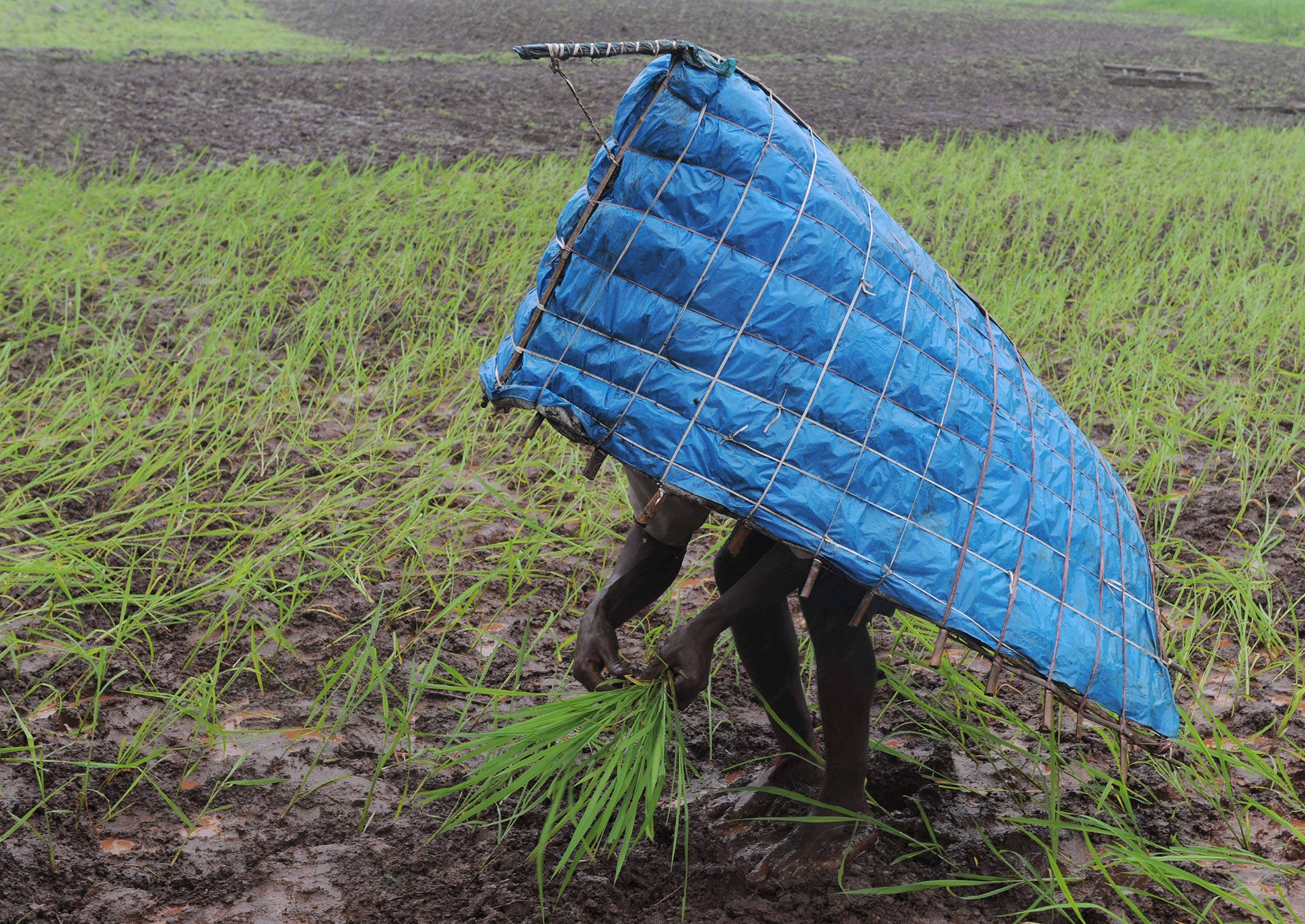Letter from Asia: India’s monsoon is one of the greatest givers — and takers — of life
It sweeps villages away, but also provides more than 70 per cent of the country's rain


The monsoon reached our bit of Delhi at 2.16pm last Thursday.
There had been some thunder, some flashes in the dark sky, and then they came – big, fat, gleeful raindrops that rapidly turned into a torrent. I jotted down the time and went up on to the roof to take a look.
After seven years living in India, the monsoon rains still thrill.
Firstly there is the sheer physicality of it - the sounds, the sights, the smells - as water hits dust and hot buildings hiss. I like watching the way the water courses down gutters, overpowering drains and running amok.
Then, when the downpour has passed, there are the few moments of peace and quiet. For a few seconds even the birds are still. The air is clear, the heavens blue, the trees and plants drip.
It comes with the knowledge of just how vital the rain is. Across South Asia, countless thousands of people die in the floods caused by the annual monsoon, as rivers break their banks and villages are swept away.
Yet the rains are also a vital sustainer. It is estimated that India receives more than 70 per cent of its total rain during the monsoon months, water that is vital for its 235m farmers and for replenishing aquifers. More than 50 per cent of the country’s agriculture relies on rain-fed irrigation.
This year, the monsoon was all the more welcome because it had been several days late in arriving. For weeks, the estimate of the arrival of the rains, which start in Kerala and work their way up the sub-continent, had been pushed back and back. Usually, they’re here in late June.
Even now there are worries about the amount of rain that has come. Sivanand Pai, head of the India Meteorological Department’s long-term forecasting division, told me from Pune, that as of now, there was a 40 per cent deficiency in the amount of rainfall they would consider a “full” monsoon.
This was the worst showing since 2009, he said, and yet he was optimistic that things could come around. “We never get less than 70 per cent, so there should be more rain to come.”
In a country such as India it’s hard to over emphasise the importance of the rains. Every year, both English language and vernacular newspapers give the estimates and predictions of Mr Pai and his colleagues front-page billing.
Even today around 70 per cent of Indians live in rural areas where agriculture is the main source of income. And while agriculture may account for little more than 20 per cent of the country’s GDP, as the World Bank said, its importance in the country’s “economic, social, and political fabric goes well beyond this indicator”.
While India’s growth rate is rumbling on at less than five per cent, inflation stands at around 8.25 per cent. By itself food inflation is a little higher and uncertainty in the Middle East and the resulting rise in oil prices is likely to see it go upwards yet. There’s also been evidence that middlemen have been hoarding supplies of essentials such as onions and tomatoes.
This explains why the progress of monsoon is watched to carefully. A poor monsoon, or even the prediction of poor monsoon, can see the financial markets tumble. They know how crucial it is to the nation and its well-being.
Last week, then, I was more than happy to stand out in the rain last week, drenched in the downpour, delighting in the simple pleasures of nature.
Another reason to enjoy it was that the aftermath of the showers is utterly miserable. A day after all that water, the sun was back and things were horribly humid. It’s essential, therefore, to enjoy the rain when it arrives.

Join our commenting forum
Join thought-provoking conversations, follow other Independent readers and see their replies